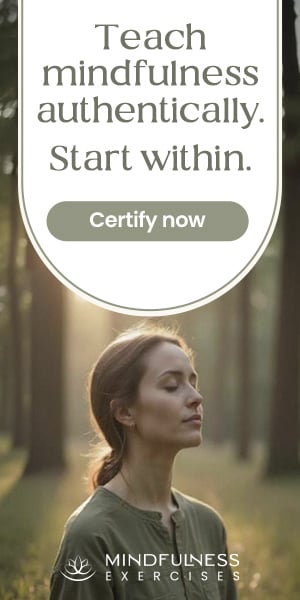

How my partner and I stopped living the obvious life and started living the life we truly wanted — a life where we actively pursue our long-term goals and strategize enough to reduce regrets — while combining two careers, an international move and more.
I am not writing this piece to brag about our life; rather share what we learned through the process of finding our life purpose and goals as a couple and the benefits that came out of it. The reality checks most of us often need in our lives and the clarity to identify our true wishes from the good to have’s.
Do we know if we start today, how many books we will read until the end of our lives? How much time have we left to spend with our parents (most people today are filled with regrets after their parent’s death, yet wouldn’t find the time to spend with them in their old age)? How much time/years we have left to see and do all the activities and take all the vacations before our health declines and we are unable to do those intensive travels?
Today as most of our basic needs and wants are satisfied, we are all still filled with regrets. A big list of should have, would have, could haves. I wish I traveled more, I wish I read more books…my dad who is 72 tells me how he wanted to travel his entire life, yet in his lifetime he barely made a trip outside of India and now at his age, he has the money but not the strength to hike mountains or go to base camp.
Here’s a bit of background on both my partner and me. We are Americans who are ethnically Indians. We were living on the east coast (New York area). Both of us have traditional corporate jobs. Our parents live in India.
How all this kicked into play
I would be lying if I said that one fine day we woke up, looked back at our life and decided we wanted more from life and changed. It didn’t happen like that. It took us a while to start living a more meaningful life and yet I remember the day it all began — as clear as if it was yesterday.
It was my husband’s 35th birthday in October 2014. You see he is a couple years older than me, so he gets the title of the “Old Person” in the family. As we sat on our dining table, by means of a casual conversation I asked, “So what did you want to accomplished by 35 and have you achieved it?”
Him: Hmm. I have no clue what I wanted by 35. There were some things I wanted in life like owning a Mercedes, having a net worth of x amount, having a salary of x before I turned 35 that I accomplished but I have no clue what I wanted by the time I turned 35 or by the time I turn 40. Holy cow! (and other expletives used) I have no idea what I accomplished by 25, or 30 or 35. I wasted my life away. I am at the halfway mark, and I didn’t utilize my best years.
My simple question and his inability to have a definite answer to what he wanted, let alone if he accomplished it, triggered a tsunami of conversations for the next three months that made us change our lives in significant ways.
In the past couple of years, we have turned our wishes into solid plans and goals. We have changed multiple aspects of our lives from where we live, to the time we spend with our aging parents, to the people who we spend time with and the places and things where we spend money on or don’t spend money on. A lot has changed since that conversation and it’s been less than four years since then.
To give you some examples, here’s what has changed:
We finally executed on our deep desire of living in a different continent (Europe).
This lead to our secondary goal of traveling and seeing most of Europe.
We have stopped wasting time on materialistic things. We live a more minimalistic life.
No cars, biking to work, walking and uber everywhere, only shopping when we need something.
We are spending more time with our aging parents. We are now able to spend five to six weeks with them because we actively positioned our jobs to have the ability to work remotely.
We have specific long-term and short-term financial goals that we execute on to ensure we have the secondary income to help us in our retirement years.
The biggest proof that all this planning and thinking had paid off was when my mother got diagnosed with cancer last year. Since we had already planned for a situation where suddenly one of us may have to go to India to take care of our parents. I was able to take care of my mother for two months — assist her through her diagnosis, surgery, and her first chemotherapy while also moving my parents to a smaller apartment — all while working 8–10 hour days without my career taking a hit.
The Process
Here is our process of finding our life purpose, doing things we truly wanted and making active choices in life so, by the time we die, we have fewer things to regret about.
There are three key items we did to get clarification on things we truly wanted in our life.
IMAGINE YOUR RETIREMENT — Think 70: What are we doing at 70, what would make us truly relaxed and satisfied at 70? Do we have grandkids? A big house where family and friends come for holidays? What will we be doing on a day to day basis in our retirement years? What all would we have accomplished by 70?
For us, the first instinct was to answer what we saw around us. For my partner, his first instinct was to want what his retired uncle does which is – play around with his eight grandkids, spend a couple hours a day managing his money and drink a glass of whiskey or two every night. Not a bad life. Except for us to achieve that, it meant we had to have kids immediately — something me & my partner were definitely not planning on. Making our dream of what we want at seventy in conflict with our current desires. This meant either we changed our current desires or actively imagine a different retirement. My partner had to then imagine multiple outcomes in detail to know which were his true wish versus just a pipe dream. And once he imagined that, he realized all he truly wanted in his old age is to live a life where he is educating young adults on life skills, taking long walks by mountainside and more. Having a big house, or having a lot of money really wasn’t crucial once he got the clarity of what he wanted in his retirement.
Think DEATH; then think your active years left!We all have that big list of books that we want to read before we die. We often postpone taking time off to visit our parents or siblings because we can always do it later. But reading this article from Tim Urban, The Tail End told us a different reality. In a nutshell, Tim Urban talks about how at the age of thirty-four, he measured his life in activity or events that he would be able to do in his life. Assuming he lived till 90, he only had 60 winters left, at his current rate of reading 5 books/year, and assuming his eyesight won’t go away, he will just read 300 books in his life and so on. Reading this article helped us calculate how much time we have left and enabled us to prioritize things we want to do and helped us calculate how quickly we needed to do them.
For us, it made us aware that the path we were on an would ensure we were not spending as much time as we wanted with our parents, with our family or even reading books and traveling. This helped me increase the number and the type of books I used to read significantly. I started reading more books hitting for me an all-time high of reading a book a month this year. This thinking about our mortality ensured that we started to travel more and really clarified that we needed to either move our parents to America or move back to India to spend more time with them.
Reflect Back & Plan Forward: We both put a list of things we love to spend time on — big and small and then reviewed what items were common grounds. For us as a couple, this process helped clarify stuff we did together, things we didn’t expect each other to do and did on our own and more.
To give an example, for me it was important I read more books, and for my partner, it was about learning to teach others about finance. We both also had some similar goals like traveling, going for meditation retreats, having an alternative income source with the realization that you just can’t rely on your jobs for the rest of your life.
Writing our desires, putting a plan to accomplish them on a quarterly basis helped us realize our success rate (and that we can’t focus on more than three things at a time). It also gave us time to look back and reflect that if we didn’t do a particular item/hit a particular goal, then why we didn’t do it. Was it because subconsciously there was something more important? This also gave us the ability to track what we are doing and accomplishing, so when we look back in another 10 years, we don’t feel we wasted our life drifting.
These three steps took us a good three to five months of talking in evenings, planning and writing and clarifying. This process is definitely not for the faint of heart. You need to think, discuss, define and think some more. This also meant we weren’t doing things that we often did to distract ourselves — like going for movies or hanging out with friends. Not that we weren’t doing it, just in this phase, we did it a lot less than we used to.
So if you don’t apply anything from this article or follow the process — just do one thing and that is PLAN. Start from the end (70) and then walk back one decade at a time. All the while planning on things which lead you to your eventual goal. Live a life you want, don’t just drift and then at 50 be full of regrets (like most people we spoke to) with a long list of should have, would have, could have.
Browse Front PageShare Your IdeaComments
Read Elephant’s Best Articles of the Week here.
Readers voted with your hearts, comments, views, and shares:
Click here to see which Writers & Issues Won.


